Are You Eating GMO Foods?
- By Charlene Oldham
- Reading Time: 5 mins.
Food labels can be a consumer conundrum for health-conscious shoppers trying to steer clear of sugar, saturated fat, and foods packed with preservatives. If you buy your groceries in California, you may soon have one more label to interpret.
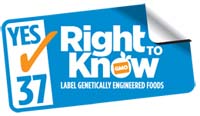
Should California’s Proposition 37 pass on November 6, most food containing genetically modified ingredients would require labels, putting the state on par with some 40 countries that require similar descriptors and possibly prompting food makers to change recipes or expand labeling into other states.
Genetically modified organisms (GMOs) have genes inserted directly into their cells, creating a new version of the plants or animals. Today, those inserted genes create a wide variety of plants, including some that grow faster, produce their own insecticide or are tolerant of glyphosate, the key active ingredient of Monsanto Co.’s RoundUp brand herbicide. But these laboratory innovations have created new problems, critics say, including a dramatic increase in herbicide spraying, genetically modified (GM) contamination of organic and non-GM conventional crops, unintended harm to helpful insects such as butterflies, and the emergence of several species of weeds that, like the RoundUp-ready crops they threaten, are resistant to glyphosate.
Want farm-fresh fruit?
We've got you covered. GM Contamination
GM Contamination
These trends have organic producers and consumers increasingly worried about the foods they grow and buy may be contaminated by pollen, seeds, or other material from GM crops. Products labeled organic by the U.S. Department of Agriculture cannot be GM or contain ingredients made from GM crops, but some farmers and food activists fear it may soon become impossible to completely avoid contamination.
“You really don’t have any non-GM rapeseed [canola] left in Canada, It’s getting to be that way with corn in the U.S.” says Ronnie Cummins, national director of the Organic Consumers Association, who explains contamination can happen in the field or while crops are being transported or processed. “This technology is inherently uncontrollable once it’s in the wild.”
Farmers who grow sustainable, but not organic-certified crops, have similar worries. “Seed growers and wheat farmers, conventional or organic, are extremely concerned. Both industries sell to countries that require GMO testing of their vegetable seed and wheat products,” says Kim Goodwin, executive director of Oregonians for Farm & Food Rights. “Seed farmers have shared with us that they do not have any way to prevent GM contamination. Their only option is to test each batch of seed before they sell it, and if an organic or (international) seed grower, plow it under if it is contaminated.”
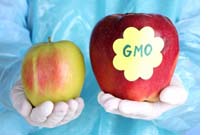
Despite these concerns, more than 90 percent of the soybeans and upland cotton and 88 percent of the corn planted in the U.S. is genetically modified, according to a USDA report released in June 2012. In all, GM crops cover 170 million U.S. acres.
For now, most of those acres produce commodity crops not found in grocery stores’ produce sections. But, because most processed foods contain products made from soy, corn, or other GM crops such as canola, nearly 80 percent of conventional processed foods have some genetically modified ingredients, according to the Organic Consumers Association. That percentage is likely to grow given regulators’ recent approval of more GM crops, including sugar beets, which are used to make sweeteners included in a wide variety of processed foods. Sugar, corn syrup, maltodextrin, lecithin, corn starch, and vegetable oil are now almost always made with GM crops.
Want farm-fresh fruit?
We've got you covered.Unknown Risks
While the FDA’s official stance on foods containing GM crops is that they are safe to consume, concerns over the unknown long-term potential risks to human health, including allergenicity and disease, have kept GM foods in a negative spotlight and prompted actions such as California’s Proposition 37 ballot measure. Hundreds of food producers, farmers and farm advocacy groups, chefs, consumer groups, health advocacy organizations, small businesses, including The FruitGuys, labor unions, and environmental groups have endorsed the Right to Know ballot initiative.
But opponents of Proposition 37 say unfounded lawsuits aimed at everyone along the food supply chain and higher grocery costs are bigger concerns than GM ingredients deemed safe by government regulators.
“This sets up a situation in California where everyone is subject to lawsuits even if they have done nothing wrong,” said Kathy Fairbanks, a spokesperson for the No on 37 coalition. “It’s a label that would be based on fear, not on fact.”
Those fears are widespread among American consumers according to a recent poll by Thomson Reuters. It showed 9 in 10 of those surveyed believed GM foods should be labeled. Poll numbers like these lead people on both sides of the issue to believe labels will prompt dramatic changes in California consumers’ buying habits and, eventually, in food producers’ ingredients lists.
“Kellogg’s is GMO-free in Europe. McDonald’s is GMO-free in Europe. Walmart is GMO-free in Europe,” says Cummins. “They can easily do that in the United States, too.”
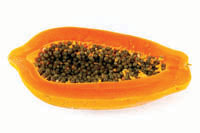 Five GM Foods That Might Surprise You
Five GM Foods That Might Surprise You
Fruits and Vegetables
Although few fresh fruits and vegetables sold in the US are genetically modified, there are some notable exceptions. About half of the papayas grown in Hawaii are GM. Small amounts of conventional zucchini, yellow crookneck squash, and sweet corn are also GM. What’s more, the FDA has approved additional varieties of GM fruits and vegetables, including plums and potatoes, that aren’t currently on the market.
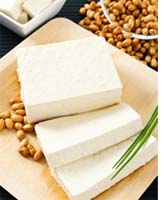 Non-Organic Soy Products
Non-Organic Soy Products
Unless they are specifically labeled organic, soy-based meat substitutes may contain ingredients derived from GMOs.
Baby Formula
While some baby formula brands add soy lecithin, corn syrup, or corn syrup solids made from GM crops to their products, milk or soy protein is the key ingredient for nearly every formula on the market. So, many conventional brands could also contain genetically modified soy protein or milk protein from cows injected with rBGH — also called rBST — a genetically engineered hormone that boosts milk production.
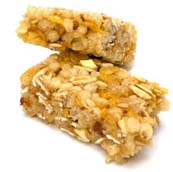
Breakfast and Energy Bars
Many of these grab-and-go options may contain genetically modified ingredients.
Aspartame
Many low-calorie products are sweetened with aspartame, which is derived from GM microorganisms. Many pharmaceuticals, including vitamins, may also contain aspartame, sometimes labeled by brand names NutraSweet or Equal.
Want farm-fresh fruit?
We've got you covered.How to know?
There is no easy way for consumers to know which processed foods contain GM ingredients. For produce, buy organic or from a local farmer who you know does not use GM seeds. These consumer advocacy groups have compiled their own lists of some products:
Center for Food Safety – The True Food Shoppers’ Guide
Just Label It! Campaign – The Nine GMO Foods on the Market in the U.S.
Organic Consumers Association – Buying Guide
Organic Trade Association – The Organic Pages
Non-GMO Project – Verified Products
___________
Charlene Oldham is a St. Louis, MO-based journalist.


